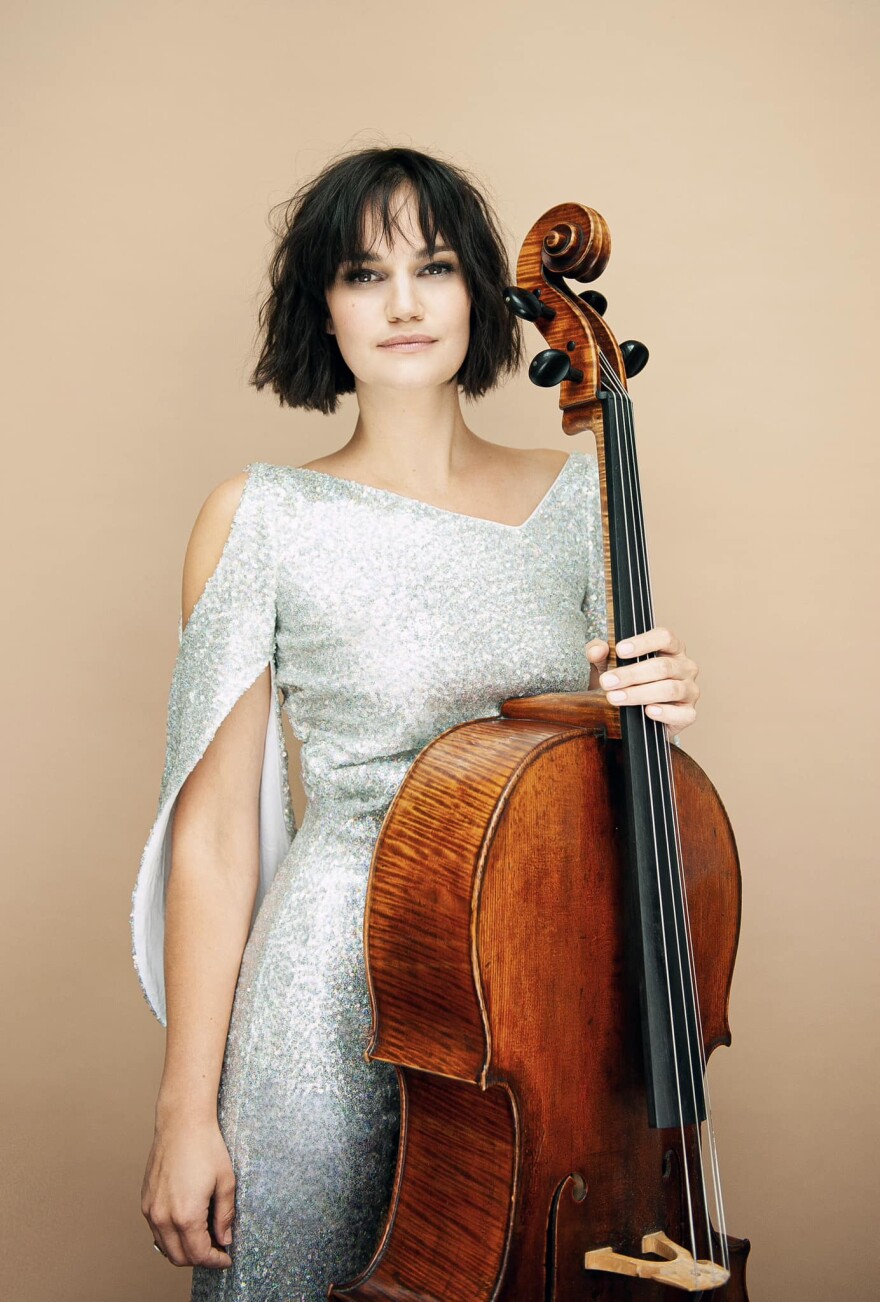Was the music you just listened to composed by a woman? Performed by a woman? Does it matter? Our new Album of the Week is Femmes, by cellist Raphaela Gromes, and it addresses these important questions as we continue to celebrate Women’s History Month on WRTI.
Of the 27 compositions on this album, only three were written by men. You can probably tell two of them right away — a couple of Mozart and Bizet’s greatest hits — if not also the piece by Purcell. The rest were penned by women. One of these is Cécile Chaminade, of turn-of-the-century France. Fellow composer Ambroise Thomas’s comment about Chaminade could also sum up Femmes: “This is not a woman who composes, but is a composer who is a woman.”
The creaminess of the performances by Rafaela Gromes and Daniel Dodds, conducting the Festival Strings Lucerne along with pianist Julian Riem, lulled me into a warm reverie. They were also punctuated by upbeat works such as Bizet’s “Carmen Fantasy,” “Miss Celle’s Blues” and the “Chocolat” suite.
WRTI listeners will find familiar names on the album’s list of composers, including Clara Schumann, Florence Price and Nadia Boulanger. But the names with which you may not be familiar caught my ear, and Gromes’ inclusion pays them tribute. She presents a world premiere recording of Tre Momenti for Cello and String Orchestra by the Italian organist, pianist and teacher Matilde Capuis. Capuis, who died six years ago at age 104, was born in Naples and served as chairman of music theory and composition at the Giuseppe Verdi Conservatory in Turin. Gromes’ performance of her work sparkles with frenetic energy.
Victoria Yangling’s Aria, from her Suite for Cello and String Orchestra, brings another 21st Century classical vibe to the album. Yangling, a Russian-born Finnish cellist who died in 2011, is best known for her three cello concertos. She certainly would have been pleased by Gromes’ delicate touch on the mournful Aria.
Reaching back through the last three centuries, we discover works by German pianist Luise Adolpha Le Beau, Dutch pianist Henriette Bosmans, and the blind Austrian pianist Maria Theresia von Paradis, for whom Mozart is said to have written his Piano Concerto No. 18. There’s also royalty on hand, in the form of Duchess Maria Antonia Walpurgis Von Bayern, Princess of Bavaria. The Duchess was a singer, harpsichordist and composer who wrote operas, the best known of which are The Triumph of Fidelity and Talestri - Queen of the Amazons. Gromes performs the aria “Da Me Te Dividi” in a version for cello and strings by Julien Riem, who arranged many of the vocal works.
Gromes concludes the album with works by contemporary composers: the Chicago-born Dolores White, whose husband, Donald, became the first African-American cellist in the Cleveland Orchestra; and the Soviet-born American pianist and conductor Lera Auerbach. There’s even a dreamlike cover performance of the Billie Eilish theme to Daniel Craig’s final James Bond adventure, No Time To Die.
From Saint Hildegard de Bingen to Billie Eilish, Rafaela Gromes fearlessly tackles the works of women with whom she would have had not only inspiring musical conversations, but conversations about the gender-transcendent role that all good music plays in our lives.
Femmes, by Raphaela Gromes, is available now on Sony Classical.


